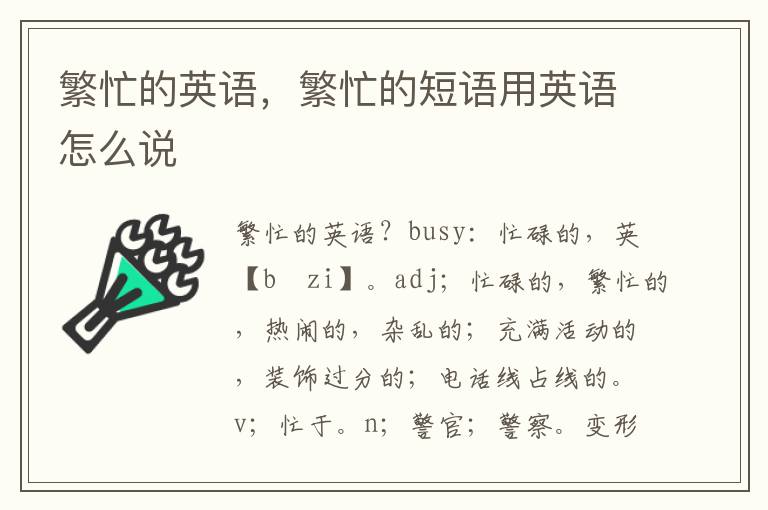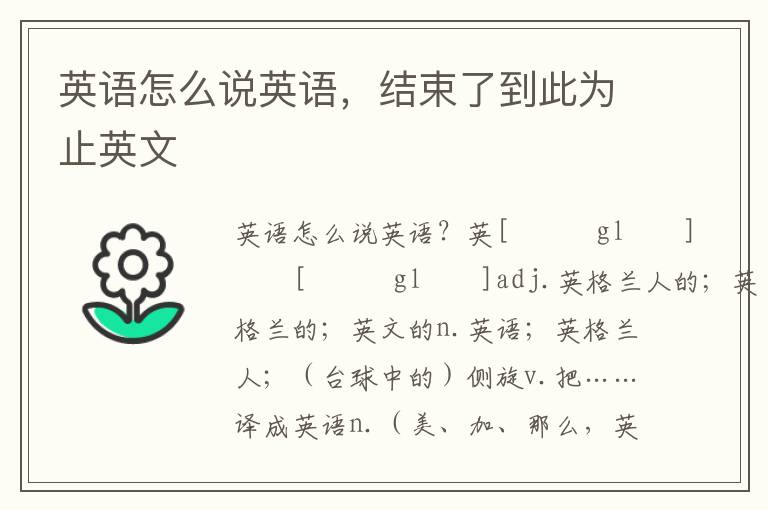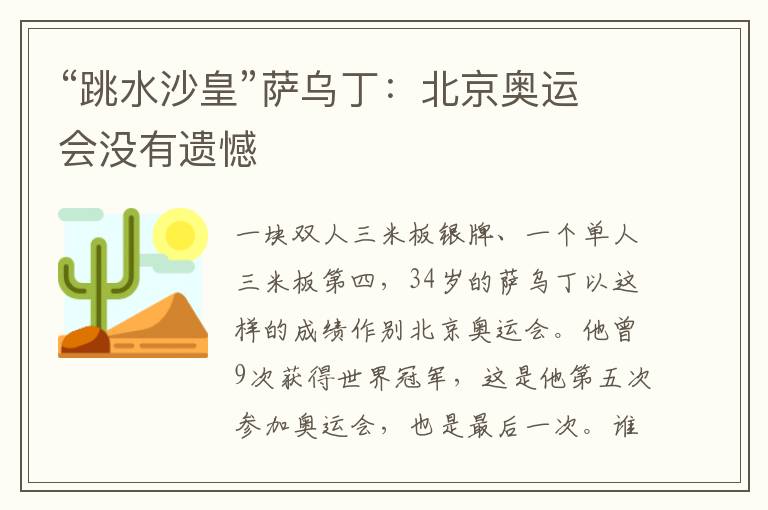【简介】感谢网友“雕龙文库”参与投稿,这里小编给大家分享一些,方便大家学习。
如火的七月,我们的情绪疯狂燃烧。奥运会开幕在即,你想好了如何盛情款待外国友人了吗?做好东道主,先要了解中西文化差异。读完以下的内容,尽情show your hospitality 吧!
To much 我的热情过了火?
You kept finishing all the food on your plate and you found your plate refilled and many more dishes following. "They were really hospitable, if anything too hospitable …"
Lisa 的误解归因于中西方文化的碰撞与冲突。做客的时候,让我们看看西方人对中国人还有可能在哪些方面产生误解。
"I must say I don't think I'll ever get used to the eating habits out here. You know, the way people put things on your plate..." 外国人不习惯中国人热情地往自己碗里夹菜。
"And isn't it odd how people here can eat their dessert and then return to their main courses? How can they bear it?" 西餐有其特定的饮食次序。如果和外国人一起吃西餐,我们最好遵循他们的用餐习惯。千万不要吃完甜食再吃主菜哦。
"Chinese never seem hungry when they come round to my place. Whenever I ask callers if they'd like a bite to eat they always say no." 大多数外国人都是实在人。当他们问你要不要吃点什么的时候,如果你谢绝了,他们会尊重你的决定,真的不给你东西吃哦。所以说,饿了就喊出来吧。
"I'm often taken aback by the way visitors come round to my flat and seem to feel free to take the place over, putting on the telly, pulling down books from my shelves, even peering at letters I've left lying around on the desk." 虽说宾至如归,但外国人还是忌讳你在做客的时候东逛西逛,甚至偷窥他们的隐私的。
To little 如此待遇谁的错?
Can you imagine how many dishes I had? Only one--a stew with meat and vegetables. I was very much disappointed at British hospitality.
这个中国学生简直是怨气冲天哦。她去英国朋友家做客到底发生了什么?让我们看看下面的文章吧。
The time was autumn of 1987, after I had settled down at Warwick University for my MA course. I was invited to give a talk to a professional women's organisation about my first impressions of Britain. After the talk, quite a few participants gave me their addresses and invited me to visit their families. They were really very friendly and helpful. The first visit left a lasting memory because it was my first time to have dinner in an English home. my hostess picked me up at the university and showed me around the city till sunset. I was very excited about the visit, but at the same time I was wondering who would cook the meal. Her husband? In China, if I am going to have some visitors to dinner, it usually takes me at least three hours to prepare the eight courses. As soon as we arrived at the house, the lady asked me to sit at the table and said everything was in the oven and ready to serve. She told me she had put food in the oven before she went to the university and after two hours of touring the city, dinner was ready. Can you imagine how many dishes I had? Only one- a stew with meat and vegetables. The meat was overdone and too hard to eat; green vegetables were no longer green. Compared with Chinese food, they were tasteless. I was very much disappointed at their hospitality. However, after I had stayed in Britain for a year and visited many different families, I became more used to the British way of showing hospitality. In Britain, hospitality is not measured by how many dishes are provided as in China. It is shown by giving you freedom to choose whatever you really want. They never press you. They never put food on your plate but just ask you to help yourself. If you, as a guest, are shy or modest, waiting for the food to be put on your plate, you will remain half-starved. Maybe that is why I lost nearly 20 pounds after a year in Britain!
文中的“我”去英国人家做客,结果吃饭的时候只有一道菜。太少了吧,这也算待客之道?其实,不是外国人不热情,而是他们表达热情的方式和中国人有所不同。
外国人喜欢热情地表示 "The dishes are quite good here; these dishes are quite famous",而不会谦虚地说食物不怎么好吃。
外国人乐于让客人们自主选择想吃的菜,而不是替客人夹菜。They think to help yourself is the best way. As long as the guests are happy with their meal, the host will be satisfied. Foreigners give guests the chance to choose what is their favourite.
一句话,外国人的表达及处世方式更为直接,而中国人则更显圆滑。Foreigners never pretend to be modest. They just tell others what they think. If a Chinese person is faced with the same situation, maybe he or she would say, "I'm sorry. The restaurant is a little bit small and the dishes are just so so, but I hope you'll enjoy yourself."
Avoiding misunderstandings 消除误解好快活!
One sometimes finds the other person's behaviour odd, or even distasteful. If we try to find out why the two sides behave as they do, we can have a better understanding of each other and communicate more successfully.
如果我们避开误解的雷区,具有不同文化的两个人就能做到“沟通无极限” !我们还是拿Lisa 和Wang Ming做例子。让我们重新设计一下双方的对话。怎么样,如此交流,是不是和谐了许多呢?
Wang: Hi! Lisa, welcome! Come in, please.
Lisa: Thanks for your invitation. It's a lovely room and very warm in here.
Wang: Thank you. Please sit and have a cup of tea. It's quite cold outside today. How long did it take you to come here? Was it difficult to find my place? Did you find the map I drew useful?
Lisa: It was very useful. It only took 20 minutes to get here. I enjoyed the walk. Winter in Beijing is very beautiful.
Wang: Lisa, dinner is ready. Please sit here facing the door. According to the Chinese custom, this is the seat for the most distinguished guest.
Lisa: Thank you. I feel most honoured. Wow! So many dishes - eight! They look delicious.
Wang: Thank you. I prepared the dishes myself. I hope you like them. Please help yourself.
Lisa: They're delicious. The Chinese food I tried in the States was not the same as this.
Wang: I'm glad you like them. But leave some room for the other eight hot dishes.
Lisa: Really? Another eight! It is not a dinner, it's a feast!
Wang: You know, the figure “eight” is a lucky number in Chinese. Two sets of eight dishes for distinguished guests.
Lisa: I feel honoured indeed. You're too kind.
Cultural shock 文化交际门道多!
you will have a better understanding of cross-cultural communication and be in a better position to avoid similar pitfalls. 避免文化冲撞,轻松跨文化交际。
Situation1:
You are eating--or have been offered--some food which you have never tried before. What would you say?
What's this?
Is this sweet or salty?
What are the materials?
What's this 听起来非常得生硬、不礼貌。最好先说出一些赞美之词,然后再提出你的问题。例如:This is delicious--what is it? (if you have just tasted it) 或者 That looks interesting--what is it ? (if you have not tasted it yet)。
说Is this sweet or salty?不算错,但不是很好,最好说Is this sweet or savoury? Savoury is a general word used to describe main course dishes like meat, and vegetables as well as others like cheese and crackers (salty biscuits). A cocktail party may offer savouries (small portions of slightly salty foods) as well as drinks and sweets. Note that the most common word for the sweet food at the end of a Western meal is dessert, but it may also be called sweet or pudding.
What are the materials? 中materials 的用词不太好,最好用ingredients替代。
Situation2:
You are offered some food you don't really like. What would you say?
No thanks, I don't like it.
No thanks, I don't want any.
有时候过度得坦率会引起交流的不快,所以你最好表示你已经吃饱了。
Situation3:
In a Western meal, you're offered a second helping but you have already had enough. What would you say ?
No, thanks. I'm full.
如果是和家人或者亲密的朋友用餐,你当然可以这么说。但如果是正式场合,你的表达最好更加委婉一些。例如:That was delicious but I've already had plenty, thanks. (实习编辑:顾萍)
如火的七月,我们的情绪疯狂燃烧。奥运会开幕在即,你想好了如何盛情款待外国友人了吗?做好东道主,先要了解中西文化差异。读完以下的内容,尽情show your hospitality 吧!
To much 我的热情过了火?
You kept finishing all the food on your plate and you found your plate refilled and many more dishes following. "They were really hospitable, if anything too hospitable …"
Lisa 的误解归因于中西方文化的碰撞与冲突。做客的时候,让我们看看西方人对中国人还有可能在哪些方面产生误解。
"I must say I don't think I'll ever get used to the eating habits out here. You know, the way people put things on your plate..." 外国人不习惯中国人热情地往自己碗里夹菜。
"And isn't it odd how people here can eat their dessert and then return to their main courses? How can they bear it?" 西餐有其特定的饮食次序。如果和外国人一起吃西餐,我们最好遵循他们的用餐习惯。千万不要吃完甜食再吃主菜哦。
"Chinese never seem hungry when they come round to my place. Whenever I ask callers if they'd like a bite to eat they always say no." 大多数外国人都是实在人。当他们问你要不要吃点什么的时候,如果你谢绝了,他们会尊重你的决定,真的不给你东西吃哦。所以说,饿了就喊出来吧。
"I'm often taken aback by the way visitors come round to my flat and seem to feel free to take the place over, putting on the telly, pulling down books from my shelves, even peering at letters I've left lying around on the desk." 虽说宾至如归,但外国人还是忌讳你在做客的时候东逛西逛,甚至偷窥他们的隐私的。
To little 如此待遇谁的错?
Can you imagine how many dishes I had? Only one--a stew with meat and vegetables. I was very much disappointed at British hospitality.
这个中国学生简直是怨气冲天哦。她去英国朋友家做客到底发生了什么?让我们看看下面的文章吧。
The time was autumn of 1987, after I had settled down at Warwick University for my MA course. I was invited to give a talk to a professional women's organisation about my first impressions of Britain. After the talk, quite a few participants gave me their addresses and invited me to visit their families. They were really very friendly and helpful. The first visit left a lasting memory because it was my first time to have dinner in an English home. my hostess picked me up at the university and showed me around the city till sunset. I was very excited about the visit, but at the same time I was wondering who would cook the meal. Her husband? In China, if I am going to have some visitors to dinner, it usually takes me at least three hours to prepare the eight courses. As soon as we arrived at the house, the lady asked me to sit at the table and said everything was in the oven and ready to serve. She told me she had put food in the oven before she went to the university and after two hours of touring the city, dinner was ready. Can you imagine how many dishes I had? Only one- a stew with meat and vegetables. The meat was overdone and too hard to eat; green vegetables were no longer green. Compared with Chinese food, they were tasteless. I was very much disappointed at their hospitality. However, after I had stayed in Britain for a year and visited many different families, I became more used to the British way of showing hospitality. In Britain, hospitality is not measured by how many dishes are provided as in China. It is shown by giving you freedom to choose whatever you really want. They never press you. They never put food on your plate but just ask you to help yourself. If you, as a guest, are shy or modest, waiting for the food to be put on your plate, you will remain half-starved. Maybe that is why I lost nearly 20 pounds after a year in Britain!
文中的“我”去英国人家做客,结果吃饭的时候只有一道菜。太少了吧,这也算待客之道?其实,不是外国人不热情,而是他们表达热情的方式和中国人有所不同。
外国人喜欢热情地表示 "The dishes are quite good here; these dishes are quite famous",而不会谦虚地说食物不怎么好吃。
外国人乐于让客人们自主选择想吃的菜,而不是替客人夹菜。They think to help yourself is the best way. As long as the guests are happy with their meal, the host will be satisfied. Foreigners give guests the chance to choose what is their favourite.
一句话,外国人的表达及处世方式更为直接,而中国人则更显圆滑。Foreigners never pretend to be modest. They just tell others what they think. If a Chinese person is faced with the same situation, maybe he or she would say, "I'm sorry. The restaurant is a little bit small and the dishes are just so so, but I hope you'll enjoy yourself."
Avoiding misunderstandings 消除误解好快活!
One sometimes finds the other person's behaviour odd, or even distasteful. If we try to find out why the two sides behave as they do, we can have a better understanding of each other and communicate more successfully.
如果我们避开误解的雷区,具有不同文化的两个人就能做到“沟通无极限” !我们还是拿Lisa 和Wang Ming做例子。让我们重新设计一下双方的对话。怎么样,如此交流,是不是和谐了许多呢?
Wang: Hi! Lisa, welcome! Come in, please.
Lisa: Thanks for your invitation. It's a lovely room and very warm in here.
Wang: Thank you. Please sit and have a cup of tea. It's quite cold outside today. How long did it take you to come here? Was it difficult to find my place? Did you find the map I drew useful?
Lisa: It was very useful. It only took 20 minutes to get here. I enjoyed the walk. Winter in Beijing is very beautiful.
Wang: Lisa, dinner is ready. Please sit here facing the door. According to the Chinese custom, this is the seat for the most distinguished guest.
Lisa: Thank you. I feel most honoured. Wow! So many dishes - eight! They look delicious.
Wang: Thank you. I prepared the dishes myself. I hope you like them. Please help yourself.
Lisa: They're delicious. The Chinese food I tried in the States was not the same as this.
Wang: I'm glad you like them. But leave some room for the other eight hot dishes.
Lisa: Really? Another eight! It is not a dinner, it's a feast!
Wang: You know, the figure “eight” is a lucky number in Chinese. Two sets of eight dishes for distinguished guests.
Lisa: I feel honoured indeed. You're too kind.
Cultural shock 文化交际门道多!
you will have a better understanding of cross-cultural communication and be in a better position to avoid similar pitfalls. 避免文化冲撞,轻松跨文化交际。
Situation1:
You are eating--or have been offered--some food which you have never tried before. What would you say?
What's this?
Is this sweet or salty?
What are the materials?
What's this 听起来非常得生硬、不礼貌。最好先说出一些赞美之词,然后再提出你的问题。例如:This is delicious--what is it? (if you have just tasted it) 或者 That looks interesting--what is it ? (if you have not tasted it yet)。
说Is this sweet or salty?不算错,但不是很好,最好说Is this sweet or savoury? Savoury is a general word used to describe main course dishes like meat, and vegetables as well as others like cheese and crackers (salty biscuits). A cocktail party may offer savouries (small portions of slightly salty foods) as well as drinks and sweets. Note that the most common word for the sweet food at the end of a Western meal is dessert, but it may also be called sweet or pudding.
What are the materials? 中materials 的用词不太好,最好用ingredients替代。
Situation2:
You are offered some food you don't really like. What would you say?
No thanks, I don't like it.
No thanks, I don't want any.
有时候过度得坦率会引起交流的不快,所以你最好表示你已经吃饱了。
Situation3:
In a Western meal, you're offered a second helping but you have already had enough. What would you say ?
No, thanks. I'm full.
如果是和家人或者亲密的朋友用餐,你当然可以这么说。但如果是正式场合,你的表达最好更加委婉一些。例如:That was delicious but I've already had plenty, thanks. (实习编辑:顾萍)












